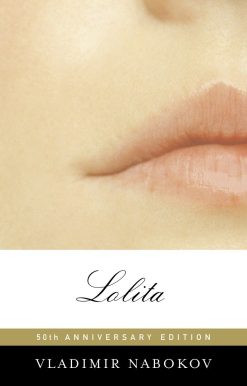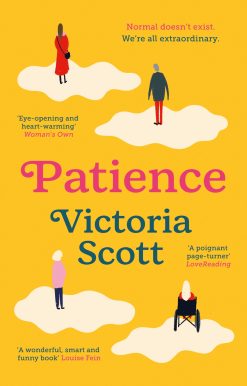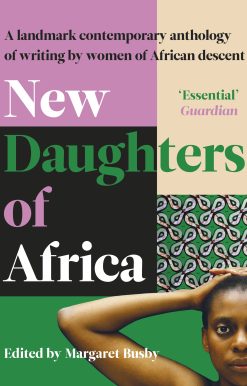Notes to Belonging: A Map to the Door of No Return
| by |
|---|
14.00 JOD
Please allow 2 – 5 weeks for delivery of this item
Description
“One enters a room and history follows; one enters a room and history precedes. History is already seated in the chair in the empty room when one arrives.” Now entering its third decade in print, Dionne Brand’s groundbreaking A Map to the Door of No Return has emerged as a modern classic, a disquisition on ‘being’ in the Black diaspora. “This book is a world, a triumph of art and thought, a compass for the ages.” —David ChariandySince its first publication in 2001, Dionne Brand’s groundbreaking disquisition on being in the Black diaspora, A Map to the Door of No Return, has emerged as a modern classic. The door, in Brand’s iconic schema, represents the point of rupture where the ancestors of the Black diaspora departed one world for another: the place where all names were forgotten, and all beginnings recast. “This door,” writes Brand, “is not mere physicality. It is a spiritual location. . . . Since leaving was never voluntary, return was, and still may be, an intention, however deeply buried. There is as it says no way in; no return.” Through shards of history, memoir, lyrical investigation, and the unwritten experience of so many descendants of those who passed through the door, Brand constructs a map of this indelible region, culminating in an enduring expression, both definitive and seeking, of what it is to live, think, and create in the wake of colonization. With a new preface by the author, and a moving afterword by Saidiya Hartman.
Additional information
| Weight | 0.22 kg |
|---|---|
| Dimensions | 1.76 × 13.24 × 20.3 cm |
| PubliCanadation City/Country | Canada |
| by | |
| Format | Paperback |
| Language | |
| Pages | 256 |
| Publisher | |
| Year Published | 2023-4-25 |
| Imprint | |
| ISBN 10 | 1039005810 |
| About The Author | DIONNE BRAND's literary credentials are legion. Her novel Theory was a Globe and Mail Best Book. Her poetry collection The Blue Clerk was shortlisted for the Griffin Poetry Prize and won the Trillium Book Prize. Her collection Ossuaries won the Griffin Poetry Prize, and other collections have won the Governor General's Literary Award, the Trillium Book Prize, and the Pat Lowther Memorial Award. Among her other novels, In Another Place, Not Here was selected as a NYT Book Review Notable Book and a Best Book by the Globe and Mail; At the Full and Change of the Moon was selected as a Best Book by the LA Times; and What We All Long For won the Toronto Book Award. In 2006, Brand was awarded the Harbourfront Festival Prize for her contribution to the world of books and writing; from 2009 to 2012 she served as Toronto's Poet Laureate, and in 2020 she won the internationally prestigious Windham-Campbell Prize for Fiction. In 2017, she was named to the Order of Canada. And in 2022, she became Editorial Director of Alchemy, a line of books within Knopf Canada. She lives in Toronto. |
“This book is a world, a triumph of art and thought, a compass for the ages.” —David Chariandy “The depth of Brand’s love for her people is matched only by the honest luminosity with which she writes her account of our lives. This book’s profound understanding of the world that chattel slavery has made invites us to see this life alchemized into a more magnified vision of our being. It confirms Brand’s ceaseless foresight and the greatness of her gift.” —Canisia Lubrin “The influence of A Map to the Door of No Return cannot be quantified. More than canonical, it has played a singular role in shaping the words, thinking, and craft of generations of Black writers across the diaspora, and will continue to do so for a long time to come.” —Robyn Maynard"Open it anywhere and start reading and it makes sense. . . . her true home is not Africa, the Caribbean or Canada, but poetry." —Ottawa Citizen"Moving and evocative. . . . Brand’s examination of her own personal odyssey is fascinating." —The Edmonton Journal "Brand's is a voice both brave and beautiful." —NOW "Dionne Brand—exults in the power of language and deploys it to lure us from harsh reality to metaphysical heights—[her] prose, so close to poetry, [is] almost musical." —National Post "Brand has two gifts that are incendiary in combination: a concise and intelligent grasp of the subtleties of emotion and an apparently effortless facility with the language. The result is an extraordinary ability to capture the flicker of experience." —The Globe and Mail "Brand's prose pays sharp attention to detail, with sensual, often playful descriptions. She injects a rhythm into her language and creates characters who burst with colour. This is a delicately structured, beautifully written novel, infused with rare emotional clarity." —The Independent, UK |
|
| Excerpt From Book | A Circumstantial Account of a State of ThingsMy grandfather said he knew what people we came from. I reeled off all the names I knew. Yoruba? Ibo? Ashanti? Mandingo? He said no to all of them, saying that he would know it if he heard it. I was thirteen. I was anxious for him to remember.I pestered him for days. He told me to stop bothering him and that he would remember. Or stop bothering or else he would not remember. I hovered about him in any room in which he rested. I followed him around asking him if he wanted me to do this or that for him, clean his glasses, polish his shoes, bring his tea. I studied him intently when he came home. I searched the grey bristles of his moustache for any flicker which might suggest he was about to speak. He raised his Sunday Guardian newspaper to block my view. He shooed me away, telling me to find some book to read or work to do. At times it seemed as if Papa was on the brink of remembering. I imagined pulling the word off his tongue if only I knew the first syllable.I scoured the San Fernando library and found no other lists of names at the time. Having no way of finding other names, I could only repeat the ones I knew, asking him if he was sure it wasn’t Yoruba, how about Ashanti? I couldn’t help myself. I wanted to be either one. I had heard that they were noble people. But I could also be Ibo; I had heard that they were gentle. And I had followed the war in Biafra. I was on their side.Papa never remembered. Each week he came I asked him had he remembered. Each week he told me no. Then I stopped asking. He was disappointed. I was disappointed. We lived after that in this mutual disappointment. It was a rift between us. It gathered into a kind of estrangement. After that he grew old. I grew young. A small space opened in me.I carried this space with me. Over time it has changed shape and light as the question it evoked has changed in appearance and angle. The name of the people we came from has ceased to matter. A name would have comforted a thirteen-year-old. The question however was more complicated, more nuanced. That moment between my grandfather and I several decades ago revealed a tear in the world. A steady answer would have mended this fault line quickly. I would have proceeded happily with a simple name. I may have played with it for a few days and then stored it away. Forgotten. But the rupture this exchange with my grandfather revealed was greater than the need for familial bonds. It was a rupture in history, a rupture in the quality of being. It was also a physical rupture, a rupture of geography.My grandfather and I recognized this, which is why we were mutually disappointed. And which is why he could not lie to me. It would have been very easy to confirm any of the names I’d proposed to him. But he could not do this because he too faced this moment of rupture. We were not from the place where we lived and we could not remember where we were from or who we were. My grandfather could not summon up a vision of landscape or a people which would add up to a name. And it was profoundly disturbing.Having no name to call on was having no past; having no past pointed to the fissure between the past and the present. That fissure is represented in the Door of No Return: that place where our ancestors departed one world for another; the Old World for the New. The place where all names were forgotten and all beginnings recast. In some desolate sense it was the creation place of Blacks in the New World Diaspora at the same time that it signified the end of traceable beginnings. Beginnings that can be noted through a name or a set of family stories that extend farther into the past than five hundred or so years, or the kinds of beginnings that can be expressed in a name which in turn marked out territory or occupation. I am interested in exploring this creation place – the Door of No Return, a place emptied of beginnings – as a site of belonging or unbelonging.MapsThe rufous hummingbird travels five thousand miles from summer home to winter home and back. This hummingbird can fit into the palm of a hand. Its body defies the known physics of energy and flight. It knew its way before all known map-makers. It is a bird whose origins and paths are the blood of its small body. It is a bird whose desire to find its way depends on drops of nectar from flowers.WaterWater is the first thing in my imagination. Over the reaches of the eyes at Guaya when I was a little girl, I knew that there was still more water. All beginning in water, all ending in water. Turquoise, aquamarine, deep green, deep blue, ink blue, navy, blue-black cerulean water.To the south of this island on a clear day you could see the mainland of South America. Women and men with a tinge of red in the black of their faces and a burnt copper to their hair would arrive from the mainland to this island fleeing husbands or the law, or fleeing life. To the north was the hinterland of Trinidad, leading to the city which someone with great ambition in another century called Port-of-Spain. To the west was the bird’s beak of Venezuela and to the east, the immense Atlantic gaping to Africa. |
Only logged in customers who have purchased this product may leave a review.
Related products
-
On backorder 2-5 Weeks to Arrive
7.99 JOD -
On backorder 2-5 Weeks to Arrive
14.00 JOD -
On backorder 2-5 Weeks to Arrive
9.99 JOD -
On backorder 2-5 Weeks to Arrive






Reviews
There are no reviews yet.